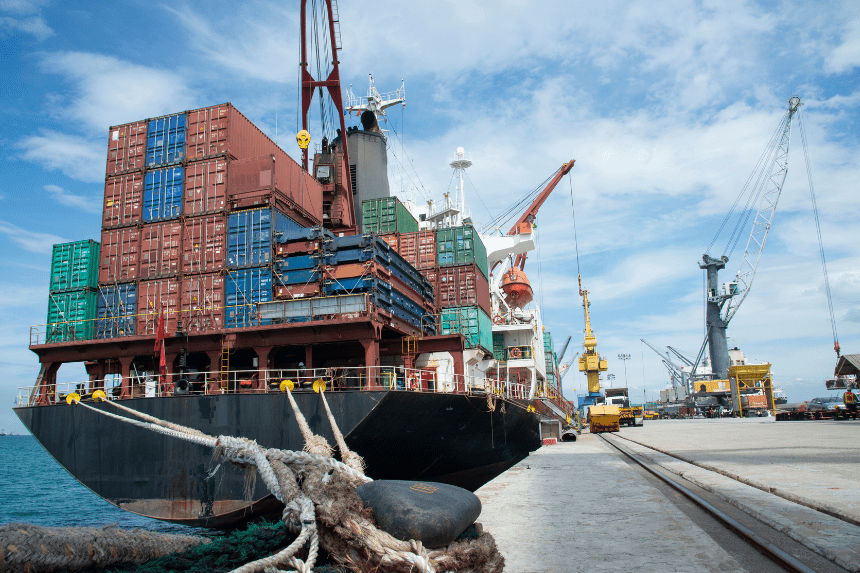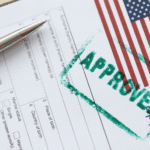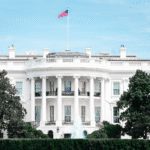The way Donald Trump used big tariffs to reshape the economy is now subject to legal investigation. The recent ruling from a federal court said he cannot impose trade penalties without gaining congressional approval, since such action is considered an overreach of his emergency powers. This case means more than trade tariffs—it concerns the power a president has over economic policy on their own. Since his team is working to continue the case in the courts, the outcome may change how presidents can use their powers. The results could have wide-reaching effects, likely altering the way trade laws are applied for a long time. While this trial is in progress, it closely examines existing court precedents and political strategies.
- Is Trump’s Economic Weapon Facing Legal Defeat?
- What Is the Legal Argument Against Trump’s Tariffs?
- How Is Trump’s Legal Team Responding?
- Could This Disrupt U.S. Trade and the Economy?
- What Are Other Countries Saying About This?
- Will This Case Reshape Presidential Trade Power?
- How Could This Affect Trump’s Political Future?
- What’s Next for the Tariff Dispute?
- Conclusion: A Turning Point for Trade and Law?
Is Trump’s Economic Weapon Facing Legal Defeat?
The bold reliance on tariffs in Donald Trump’s economic policy has found itself caught up in a major court battle. A recent court decision has challenged the president’s right to impose trade penalties alone, questioning how much power he holds in trade choices. The main concern in the case is whether Trump was over his emergency trade law limits—such a ruling might influence all future presidential activities in world trade. Meanwhile, the way in which Congress and the executive branch operate is being examined by many, and this may lead to major changes in U.S. trade rules.
What Is the Legal Argument Against Trump’s Tariffs?
The center of the controversy is the International Emergency Economic Powers Act (IEEPA), which allows the government to act rapidly during emergencies. He often used the authority to put in place wide tariffs without an immediate reason. According to specialists, invoking the IEEPA for these attacks goes farther than it was originally meant to. In a recent case, the court decided that the government steps overboard when it imposes tariffs using this authority. The decision could change the rules on how and when emergency measures are allowed in trade cases.
How Is Trump’s Legal Team Responding?
As soon as the court decided against “Liberation Day” tariffs, the Trump team quickly filed an appeal. They say that restricting the president’s actions in trade cases worsens the nation’s security and makes it harder to bargain with foreign nations. For now, an appellate court has placed the tariffs on hold as it looks over the case. Behind the closed doors, Trump’s lawyers are considering taking the case to the Supreme Court if necessary, which shows how significant they consider this case for preserving his accomplishments in trade.
Could This Disrupt U.S. Trade and the Economy?
Confusion in the law has already led to unclear economic effects. Many companies subjected to the tariffs, especially importers, are struggling with increased expenses, chaotic supply lines, and the inability to plan well into the future. As a result, there could be higher prices for people and difficulties with partners in international trade. When the courts reject the tariffs, companies have the option to look for compensation, which could start a series of complicated financial disagreements. As a result, legal challenges in trade give business leaders different barriers, making it tougher to predict and estimate their financial situation.
What Are Other Countries Saying About This?
America’s trading partners are following the changes carefully. Retaliatory actions by these countries were frequently the response to Trump’s tariffs on many of them. The recent decision from the court has led some foreign leaders to hope that U.S. trade steps will be reviewed by judges. Because of these developments, some believe future unilateral actions by certain countries might be prevented, and more negotiation and teamwork will be chosen in place of unilateral tariff increases. While the U.S. outcome remains uncertain for some nations, many countries are rethinking how they will handle future U.S. relations. Read another article on Amazon and Trump Clash
Will This Case Reshape Presidential Trade Power?
According to legal experts, this case may shape the role of the executive branch. If it is decided that Trump’s tariffs were unconstitutional, Congress could gain more control over trade laws. It would require upcoming presidents to cooperate with legislators before making key economic moves. It also makes it possible for lawmakers to take another look at laws that give the president wide powers over the economy, especially those connected to emergencies. The law might be reworked so that actions are fast while still following democratic processes.
How Could This Affect Trump’s Political Future?
The issues for Trump are political as well as legal. These legal challenges to Trump’s trade policies take place while he keeps playing a major role in American politics. Fans of Trump admire his hard-line approach to foreign competitors, while many opponents view his use of tariffs and the resulting lawsuits as examples of bad leadership. The result may either boost Biden’s status as a bold economic leader or weaken it because of accusations of doing too much. If the public notices the economic impact at the time of such legal issues, it may shape the way campaigns present themselves.
What’s Next for the Tariff Dispute?
At this point in the legal process, what happens next is important. The matter will be decided by the appellate court, and Trump’s legal team looks ready to involve the Supreme Court if required. At the same time, lawmakers are thinking about what action to take and are considering adjustments to trade and emergency laws. Experts believe the final decision will influence Trump’s reputation as well as determine how America deals with trade challenges going forward.
Conclusion: A Turning Point for Trade and Law?
Debates over Trump’s tariffs go beyond policy disagreements—they are about the basic ideas behind the U.S. Constitution. The question is raised about how much influence one person is allowed to have in international trade and whether political goals are valid grounds to use emergency measures. A solution to the dispute could bring about a major change in Congress’s and the president’s influence over trade and could return control of trade policy to a more careful and democratic method. The final result of the court’s review is likely to have a long and deep impact on U.S. economic policies.








